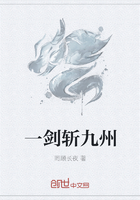The year 1809 had come; but the war against France, so intensely longed for by all Austria, had not yet broken out, and the people and the army were vainly waiting for the war-cry of their sovereign, the Emperor Francis. It is true, not a few great things bad been accomplished in the course of the past year: Austria had armed, organized the militia, strengthened her fortresses, and filled her magazines; but the emperor still hesitated to take the last and most decisive step by crowning his military preparations with a formal declaration of war.
No one looked for this declaration of war more intensely than the emperor's second brother, the Archduke John, a young man of scarcely twenty-seven. He had been the soul of all the preparations which, since the summer of 1808, had been made throughout Austria; he had conceived the plan of organizing the militia and the reserves; and had drawn up the proclamation of the 12th of May, 1808, by which all able-bodied Austrians were called upon to take up arms. But this exhausted his powers; he could organize the army, but could not say to it, "Take the field against the enemy!" The emperor alone could utter this word, and he was silent.
"And he will be silent until the favorable moment has passed,"sighed the Archduke John, when, on returning from a very long interview with the emperor, he was alone with his friend, General Nugent, in his cabinet.
He had communicated to this confidant the full details of his interview with the emperor, and concluded his report by saying, with a deep sigh, "The emperor will be silent until the favorable moment has passed!"Count Nugent gazed with a look of heart-felt sympathy into the archduke's mournful face; he saw the tears filling John's large blue eyes; he saw that he firmly compressed his lips as if to stifle a cry of pain or rage, and that he clinched his hands in the agony of his despair. Animated by tender compassion, the general approached the archduke, who had sunk into a chair, and laid his hand gently on his shoulder. "Courage, courage!" he whispered; "nothing is lost as yet, and your imperial highness--""Ah, why do you address me with `imperial highness'?" cried the archduke, almost indignantly. "Do you not see, then, that this is a miserable title by which Fate seems to mock me, and which it thunders constantly, and, as it were, sneeringly into my ears, in order to remind me again and again of my deplorable powerlessness?
There is nothing 'imperial' about me but the yoke under which I am groaning; and my `highness' is to be compared only with the crumbs of Lazarus which fell from the rich man's table. And yet there are persons, Nugent, who envy me these crumbs--men who think it a brilliant and glorious lot to be an 'imperial highness,' the brother of a sovereign emperor! Ah, they do not know that this title means only that I am doomed to everlasting dependence and silence, and that the emperor's valet de chambre and his private secretary are more influential men than the Archduke John, who cannot do anything but submit, be silent, and look on in idleness.""Now your imperial highness slanders yourself," exclaimed Count Nugent. "You have not been silent, you have not looked on in idleness, but have worked incessantly and courageously for the salvation of your people and your country. Who drew up the original plan for the organization of the militia and the reserves? Who elaborated its most minute details with admirable sagacity? It was the Archduke John--the archduke in whom all Austria hopes, and who is the last refuge and comfort of all patriots!""Ah, how much all of you are to be pitied, my friend, if you hope in me!" sighed John. "What am I, then? A poor atom which is allowed to move in the glare of the imperial sun, but which would be annihilated so soon as it should presume to be an independent luminary. Pray, Nugent, do not speak of such hopes; for, if the emperor should hear of it, not only would my liberty be endangered, but also yours and that of all who are of your opinion. The emperor does not like to see the eyes of his subjects fixed upon me; every kind word uttered about me sours him and increases the ill-will with which he regards me.""That is impossible, your highness," exclaimed the count. "How can our excellent emperor help loving his brother, who is so gifted, so high-minded and learned, and withal so modest and kind-hearted? How can he help being happy to see that others love and appreciate him too?""Does the emperor love my brother Charles, who is much more gifted and high-minded than I am?" asked John, shrugging his shoulders.
"Did he not arrest his victorious career, and recall him from the army, although, or rather BECAUSE, he knew that the army idolized him, and that all Austria loved him and hoped in him? Ah, believe me, the emperor is distrustful of all his brothers, and all our protestations of love and devotedness do not touch him, but rebound powerlessly from the armor of jealousy with which he has steeled his heart against us. You see, I tell you all this with perfect composure, but I confess it cost me once many tears and inward struggles, and it was long before my heart became calm and resigned.















